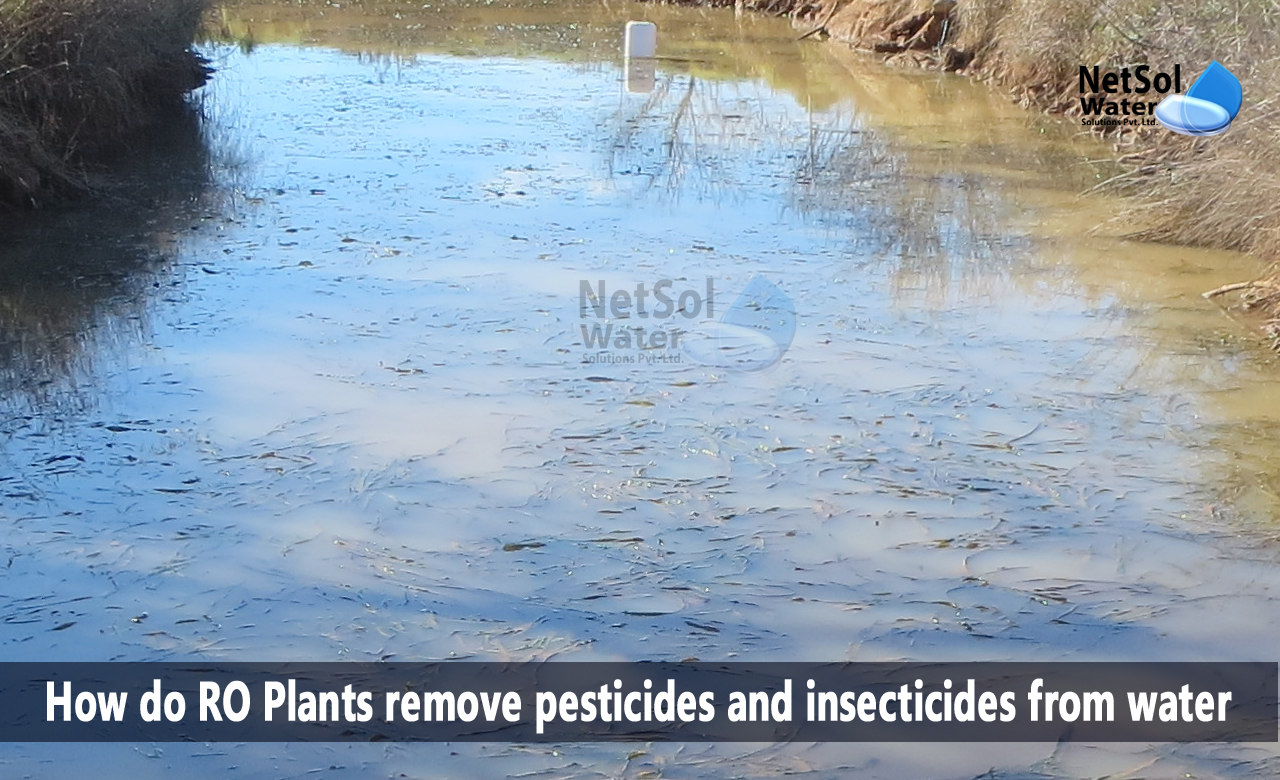Water treatment plant providers, such as Netsol Water are obligated to analyse water on a regular basis, in order to prevent impurities in our drinking water systems. While, most public water suppliers do a fair job of filtering out impurities, many chemicals found in our water today are not controlled, or need further treatment which includes traditional treatment techniques like boiling of water, or the advanced techniques such as using RO Plants, etc.
But, we must be aware of how water treatment techniques like reverse osmosis can remove contaminants, like pesticides and insecticides.
Pesticide and insecticide pollution in our drinking water
Pesticide and insecticide pollution in our ground water vary greatly, and the health risks are unclear. Pesticides and insecticides are found in higher concentrations in surface water than in groundwater.
Diazinon, chlorpyrifos, 2,4-D, alachlor, tebuthiuron, carbaryl, prometon, simazine, cyanazine, atrazine, deethylatrazine, diuron, and metolachlor, are examples of these pesticides found in drinking water systems.
According to the research, the short-term exposure can cause eye irritation, gastrointestinal difficulties, vomiting, dizziness, migraines, and seizures. Cancer, learning difficulties, diabetes, autism, and foetal abnormalities have all been linked to long-term exposure to pesticides and insecticides.
Effect of pesticides and insecticides on human beings
Scientists warn that even in trace amounts, many pesticides can disrupt the delicate processes that govern our growth, health, and reproduction.
Removal of pesticides from drinking water using activated carbon filters
Other pesticide and insecticides filtering methods use carbon filters attached to the RO Plant.
How to remove pesticides from drinking water using boiling technique through a distiller?
Electricity is used in water distillers to boil water and collect the steam, which drops into a clean container. They are capable of removing the majority of pollutants, including pesticides and insecticides.
However, when compared to other types of filters, they can be expensive to purchase and maintain, but they are effective for removing insecticides and pesticides from water through boiling.
How do RO Plants remove pesticides and insecticides from water?
A reverse osmosis system or RO Plants with activated carbon filters is one of the most effective ways, to remove 97-99% of all pesticides and insecticides from drinking water.
How to remove pesticides using a reverse osmosis filter?
Membranes in reverse osmosis plants remove the majority of chemicals, TDS, and other impurities from your water. A reverse osmosis system typically includes three filtration stages, one of which is activated carbon, which removes chlorine and other contaminants. A reverse osmosis membrane eliminates germs, viruses, and minerals. The system's final filter employs activated carbon to remove any trace impurities.
How can we assist?
If you want to avoid drinking pesticides and herbicides contained in your water supply, the best thing you can do is filter and purify all of your home's drinking water. Filtering will allow you to remove these substances before they enter the pipelines, where they will be inaccessible.
Therefore for better solutions for water and wastewater treatment, turn to Netsol Water as soon as possible. We provide a wide variety of treatment plants, many of which can be altered to suit the demands of our clients. We can provide solutions that are both inexpensive and trouble-free.
Netsol Water is Greater Noida-based leading water & wastewater treatment plant manufacturer. We are industry's most demanding company based on client review and work quality. We are known as best commercial RO plant manufacturers, industrial RO plant manufacturer, sewage treatment plant manufacturer, Water Softener Plant Manufacturers and effluent treatment plant manufacturers. Apart from this 24x7 customer support is our USP. Call on +91-9650608473, or write us at enquiry@netsolwater.com for any support, inquiry or product-purchase related query.



